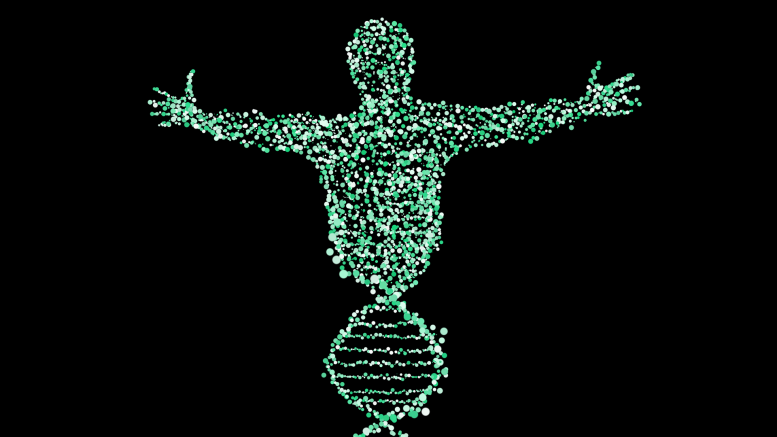Their commercials are great! People who have done DNA testing via Ancestry.com discover stories and family members they never knew about. Pieces of the puzzle are miraculously filled in by the company that was founded in 1996 and marketed as a family history website. They have over 10,000 terabytes of genetics data, as well as data on births, marriages, immigrations and deaths, so at its heart, Ancestry is an extremely valuable collection of worldwide DNA and associated metadata.
The company has come a long way since it was founded in 1990 by two graduates of Brigham Young University (BYU), Paul Allen and Dan Taggart, both members of the Church of Latter Day Saints (LDS), more commonly known as the Mormon Church. The two began compiling church publications in a collection called Infobases. The collection was first sold on CDs but as it became larger, they put the collection online in 1996. As technology evolved, the collection was digitized and quickly became a gold mine. In three short years, the founders raised $90 million and renamed their collection Ancestry.com as we know it today.
A common misconception exists that the Mormon Church actually owns Ancestry.com. They don’t, but the founders were heavily influenced by the LDS church, and have closely collaborated with the church on many projects. To this day, LDS members have free access to Ancestry.com.
The LDS church is well known for the millions of genealogical records they have collected from all over the world. They are kept in the Granite Mountain records vault outside of Salt Lake City, Utah. The vault, in the Wasatch mountain range, was built in 1965, holds over 3.5 billion digitized records, and is built to withstand an apocalypse. The majority of the digitized records are available in the Family History Library (FHL) in Salt Lake City or can be searched online at Familysearch.org, a non-profit run by LDS. Suffice it to say that this library is one of the largest genealogical libraries in the world. It may be one of the most complete collections of death records in that it contains the names of more than 8 billion deceased people from over 100 countries.
An Investment Firm Owns Your Data
While the FHL library numbers are impressive, Ancestry.com holds 20+ billion records to date. So, you might then say that Ancestry.com is regarded as a high tech company rather than a geneology company. Their own slogan says, “AncestryDNA gives you much more than just the places you’re from.” And indeed it does. For $99, you receive a DNA activation kit, and for $20 more, you receive a list of 35 personal traits that you likely have based on your DNA.
And now, that DNA data is in the hands of a gigantic Wall Street investment firm. Few of us have probably asked the question, “Who owns Ancestry.com?” In 2020, Blackstone Group purchased a majority stake in Ancestry.com for the staggering amount of $4.7 billion. This is the first business deal for Blackstone’s newly formed $26 billion fund, Blackstone Capital Partners VIII. Blackstone paid more than double the valuation of $2.6 billion from 2018. That’s a big jump.
Interestingly, in 2016, Silver Lake Partners obtained significant amounts of equity in Ancestry. Silver Lake was started by Glenn Hutchins, who was at Blackstone and then founded Silver Lake Partners. Hutchins had Thomas Lee as a former business partner before they split in the 1990s. Lee, a well known close friend of Bill and Hillary Clinton, shocked those who knew him when he committed suicide in February 2023.
But I digress. Between 2016 and 2020, Ancestry.com expanded worldwide to have offices in Dublin, London, San Francisco, Sydney and Munich. Silver Lake and Blackstone are rivals, and Blackstone purchased the company from rival Silver Lake as well as two other private equity firms. Why did Blackstone pay a record sum for Ancestry? They say data is a good investment, and Ancestry has a lot of data. Ancestry.com currently has over three million paying customers from 30 different countries, which generates $1 billion in annual revenue for the company. Blackstone says that more and more people are becoming interested in family history, so that is why they made the investment. Put another way, they’re going to make up for a $5 billion investment through subscription fees that run $50 per month max.
 But is that really it? Or is it that they will use the Ancestry data for other purposes and sell it to other high bidders. Ancestry.com already uses test kits to provide people with genetic health risk information and they’re looking into personalized medicine, a unique treatment made just for you based on your DNA. Another thing worth mentioning is that Blackstone lists as a senior advisor a man named Jeffrey Kindler, a former chairman and CEO of Pfizer.
But is that really it? Or is it that they will use the Ancestry data for other purposes and sell it to other high bidders. Ancestry.com already uses test kits to provide people with genetic health risk information and they’re looking into personalized medicine, a unique treatment made just for you based on your DNA. Another thing worth mentioning is that Blackstone lists as a senior advisor a man named Jeffrey Kindler, a former chairman and CEO of Pfizer.
Investment firms always have a plan to make money back before they make such a purchase, especially one with a $4.7 billion price tag. As investors, are they interested in that data for other reasons, and if so, what are those?
Why would Blackstone buy a literal treasure trove of genetic data and not use it? These data are highly valuable to lots of folks, like insurance firms who may not insure you and employers who may not hire you based on your DNA. Oh, and drug companies LOVE DNA data. Just ask GlaxoSmithKline, the pharmaceutical giant that partnered with Ancestry rival 23andMe in 2018 to buy a $300 million piece of the pie for access to genetic data from 12 million users.
Even before the Glaxo deal, Google purchased part of 23AndMe over a decade ago, in 2007. Maybe this is because the 23AndMe CEO (Anne Wojcicki) married a Google co-founder (Sergey Brin), also in 2007. Then, in 2013, Google announced a hush-hush project called Calico Labs aimed at anti-aging technology. Does it really take much brain power to figure out where Calico gets its DNA information from?
Utter Nonsense
It is utter nonsense, in my opinion, to believe that Blackstone paid nearly $5 billion simply for a digital subscription service. If you gave your DNA to Ancestry.com or another direct-to-consumer genetics products company, you hopefully read the fine print, because you voluntarily gave your DNA to a company with the singular goal of making money from that DNA. Since federal medical privacy laws don’t apply to genealogical sites, Blackstone can do as they please.
There’s even more fine print that’s important. Despite Ancestry’s vast assurance that they will never sell your DNA data, there is a tiny provision that says the company reserves the right to use genetic information for “scientific” research. Very vague. Very broad. And very lucrative, particularly for Blackstone’s other major company holdings which include insurance companies, research labs and big pharma. After all, Blackstone lauds their “extensive partnerships with the pharmaceutical, biotechnology and medical technology industries” right on their own website.
++++++++++++++++++++++++++++++++
Like what you’re reading on The Tenpenny Report?
Share this article with your friends. Help us grow.
Join our list here
++++++++++++++++++++++++++++++++
Fed Up Texas Chick is a contributing writer for The Tenpenny Report. She’s a rocket scientist turned writer, having worked in the space program for many years. She is a seasoned medical writer and researcher who is fighting for medical freedom for all of us through her work.

